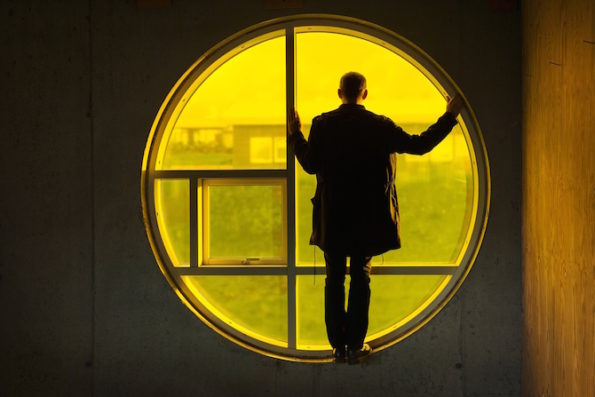Search
To search for an exact match, type the word or phrase you want in quotation marks.
A*DESK has been offering since 2002 contents about criticism and contemporary art. A*DESK has become consolidated thanks to all those who have believed in the project, all those who have followed us, debating, participating and collaborating. Many people have collaborated with A*DESK, and continue to do so. Their efforts, knowledge and belief in the project are what make it grow internationally. At A*DESK we have also generated work for over one hundred professionals in culture, from small collaborations with reviews and classes, to more prolonged and intense collaborations.
At A*DESK we believe in the need for free and universal access to culture and knowledge. We want to carry on being independent, remaining open to more ideas and opinions. If you believe in A*DESK, we need your backing to be able to continue. You can now participate in the project by supporting it. You can choose how much you want to contribute to the project.
You can decide how much you want to bring to the project.

We live in a complex reality the result of an endangered world, full of global risks, to which we are all exposed and for which nobody takes responsibility, one that to a certain extent signals the failure of a collective project. The management of globalisation has supposed up until now for many countries an important reduction in their sovereignty and their capacity to take decisions on questions that directly influence the quality of life of their inhabitants. Currently, there are many voices that defend the possibility of a different form of globalization, as if “the possible” could today champion a new meaning that goes beyond the barrier of the “feasible”. In the last decade of his life, José Luis Sampedro published a series of essays in support of a total and humanitarian globalisation, Let’s globalize everything! [[José Luís Sampedro, Multimegamuchaglobalización, 2007. Ed. Universitat]] that could be extended to the rest of life’s ambits and not be limited just to the economy.
In this scenario of shared uncertainties and common goods, today culture is decisive in that it grants meaning to the world and facilitates new spaces for reception and interpretation. Often, when cultural globalisation is discussed reference is made to the problems associated with mass tourism and the globalization of art museums and their exhibitions. Nevertheless, the main danger of cultural globalization is not homogenisation, although that too, so much as the loss of value and meaning in a world oriented almost exclusively to economic profitability. It is at this point that culture is vulnerable, while its values are subject to determining factors that are alien to it.
In this sense, there are ever more cultural institutions and museums that confront this complex reality from within, creating spaces for discussion regarding the aspects that configure and/or overshadow the global: ecology and climate change; the future of Europe; the question of common spaces and their uses; the crisis of capitalism and the regression of democracy; immigration and the drama of refugees; access to information and knowledge; post-colonialism; bio-ethics, etc. They are regular subjects, which in the last few years have fed the programmes of many art centres and museums and articulated their educational programmes. Last April, MACBA in Barcelona, organised the seminar Global Art Challenges with the aim of analysing global art and the many challenges that this raised. The Museo Reina Sofía has organised in recent days The Workforce, Precariousness and Super-Exploitation in Global Capital Circuits, focussed on working conditions in different international contexts. And last April, the CA2M in Móstoles also organised some Open days on climate change, the oil peak, and socio-economic crisis on a global scale, to mention only a few recent examples.
That said, up to what point does this type of content affect the institutions housing them? That they theorise and extend the possibilities for debate surrounding globalisation and its various effects is unavoidable, in that the cultural institutions also suffer this vulnerability given their present lack of credibility and mistrust of them. Art and culture have to account for the world we live in through the analysis of its political, economic, and social functioning. However, it is not enough to house “progressive contents”, that don’t always pertain to a specific ideological spectrum. It’s more about applying “cultural ethics” that provide answers and are coherent with the preoccupations and demands of the societies in which they are inserted, in that there also be a correspondence between the stated contents and the way in which these same institutions are managed. To theorise about ecology when no kind of protocol has been established for the protection of the environment is not responsible, just as to reflect on neoliberalism and precarious working practices at the same time as the employees of such an institution have unstable, or non-existent contracts is contradictory. Regarding the latter we are all familiar with examples: the strike maintained up until now by employees of the customers service sector of different museums in Barcelona, MACBA included, or the conflict that erupted a few months ago in La Laboral of Gijon due to the precarious nature of the employment of a large part of its team. Nevertheless, on occasions good intentions are not enough; political will is also needed and a level of autonomy, as well as a renewed judicial and administrative framework that integrates codes of ethical conduct and facilitates a certain independence in institutional decision making.
The philosopher Daniel Innerarity, in his essay Ètica de l’hospitalitat [[Daniel Innerarity, Ètica de l’hospitalitat, 2001]], recurs to the universal metaphor of “hospitality” to articulate his reflection upon ethics closer to home that implies concepts such as generosity, receptivity, and a favourable disposition towards the complex, as well as a means for managing difference and facing up to a vulnerability that is at the same time intrinsic to being human. Hospitality would therefore have a primordial function of reducing the uncertainty implicit in the idea of receiving the stranger or the different. Based on a phrase of George Steiner, “we are each other’s guests”, that is to say, we are guests and hosts at the same time, Innerarity defends a world in which a structure for the reception and meeting with others is imposed, in which a “remuneration in kind” is produced.
In the light of this compensation, a public cultural institution financed with public money has the responsibility, as much as it can, of improving the life of citizens. By making the complex comprehensible or provide codes for this through access to knowledge and non-mediated experiences that diminish the sensation of fragility in the face of the other or the unfamiliar; inventing new forms of collaboration; being a centre for reception and encounter, to strengthen in any case the social and cultural fabric in which it develops. In the same way, it ought to appeal to responsibility and set a good example, for today more than ever we are conscious of living in a shared world and every action we commit, be it individually or collectively, however petty it might be, has consequences that blur a possibly shared destiny.

Rosa Naharro endeavours to think about the present, considering its distinct contexts, through culture and contemporary art. Looking at exhibitions, writing, reading, film, music and even conversations with friends serve as her tools. Understanding and interpreting “something” of what we call the world becomes a self-obligation, as well as taking a certain stance, that doesn´t distance her from it. She combines writing for A*Desk with writing her doctoral thesis at the UCM and working with cultural management projects.
"A desk is a dangerous place from which to watch the world" (John Le Carré)